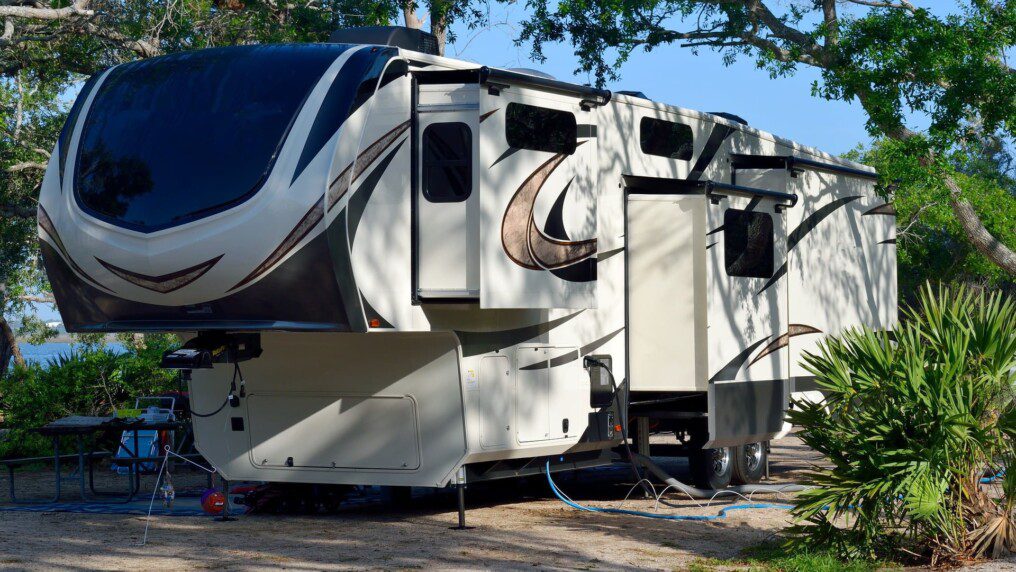
If you are looking for a suitable trailer for your RV travel, this post will give you a clear perspective of what you want and what you will need. This article will help you understand the ABCs of RVs based on the top RV Dealer Dallas – a top provider of all your RV needs & bidding on an online repossessed RV auction is also a way to go.
If you are looking for the lowest expensive way of RVing, towable RVs are is recommended. The reason is that a family SUV or truck propels them, making them simpler, to begin with than a motorhome. Towable RVs come in a wide variety of designs and sizes that fit your budget.
The trailer can be removed from the tow vehicle, all-year-round your SUV or truck can serve as a vacation coach, recreational trailer all-in-one. On top of that, tow vehicles usually have modern safety features that are not customed on an RV, these features include a forward-collision warning, blind-spot warning, automatic emergency braking, and extensive car crash protection. Tow vehicles allow kids to travel safely in their car seats, and sometimes these options are not available in some motorhomes.
Below are several types of recreational trailers you can consider:
1. Pop-Up Trailers:
Pop-up trailers sit about four feet high when being towed and are usually raised electrically or by hand crank when at the camping ground. Some are tentlike sides, that pull out like an extension out of either end. Brands like Aliner, TrailManor, provide more insulation and durability.
Length: 8 to 20 feet
Weight: 1,000 to 4,000 pounds
Accommodates: From two eight
Cost: $10,000 to $30,000
Pros:
- Cheaper than any type of trailer
- Lightweight and can be towed by most cars
- Helps fuel economy by its low aerodynamic feature
- Has pull-out sleeping bed extensions, creates spaces for short trailers
- Hard-sided models are easy to set up
Cons:
- Not enough room for an enclosed bathroom or no bathroom at all
- Not enough insulation from cold or noise
- When having a quick stop for a camp-style lunch, one needs to gain access by raising up the trailer.
- Tent-sided models fabric needs maintenance and frequent replacement
- Some tent-sided models are restricted from campsites due to danger from bears.
2. Travel trailers:
Travel trailers are the most popular towable RV. It has a feature of solid walls and pulls or motors to provide the inner width when camping.
Travel trailers ‘ variety of sizes and designs:
- “Teardrop” or small retro-inspired trailers with tent and bed on wheels
- Casita and Scamp have small molded fiberglass for low-maintenance designs.
- Forest River, Gulfstream, and Jaycomidpriced trailers
- The iconic and aerodynamic Airstream with a distinctive aluminum body
Small travel trailers have single axles whereas larger axles can have two or three. More axles provide towing stability and let you limp trailers to safety I case of a flat tire, an additional cost for tire replacement is needed.
Length: 8 to 40 feet
Weight: 1,000 to 10,000 pounds
Accommodates: From two to eight
Costs: $10,000 to $150,000
Pros:
- Rigid walls provide more insulation from cold and noise
- Easy to set up
- Has a variety of length and weight
Cons:
- Different driving skills are required
- Large trailers will not fit into small campgrounds
- A suitable tow vehicle is needed
3. Expandable or Hybrid Trailers:
Expandable or Hybrid Trailers give additional space without the downsides by its added length and weight. You can do this by combining the hard-sided body of a conventional trailer with the pull-out end found typically on a folding trailer.
Length: 8 to 26 feet
Weight: 2,500 to 5,500 pounds
Accommodates: Four to eight
Cost: $10,000 to $40,000
Pros:
- Additional space without adding length and weight
Cons:
- Time-consuming to set up
- Fabric need eventual replacement
- Not as quiet as hard-sided trailers
4. Fifth-Wheel Trailers:
Fifth-wheel trailers are designed to be towed usually by larger vehicles or pickup trucks. This trailer is generally heavy and requires at least a half-ton truck equipped from the factory to fully maximize its payload. Manufacturers such as Escape fiberglass trailers design smaller-sized fifth-wheels that are easily towed using smaller trucks.
Length: 20 to 40 feet
Weight: 7,000 pounds and up
Accommodate: Four to eight
Cost: $20,000 to $150,000
Pros:
- Gives more space for towing length
- Fifth-wheel tend to be stable for towing
- Has a bedroom in front
Cons:
- Often needs a heavy-duty truck
- Limited use of a truck bed for towing
- Might not fit under some bridges because of height
CONCLUSION:
Take your time when buying your recreational RV or trailer. You can save grief and money by renting a TV before buying. Many people who stick with the hobby can go to two or three RVs before they find the right RV perfect for recreational travel.
Read Also:





























